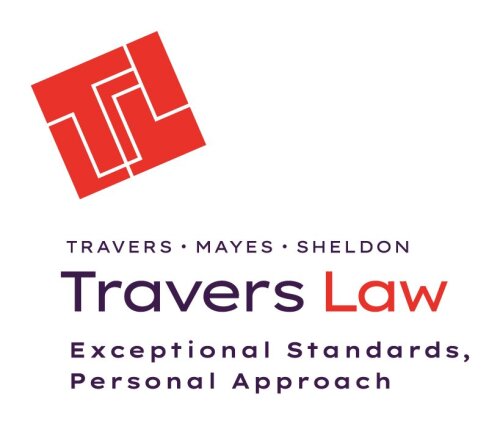Best Will & Testament Lawyers in Waterloo
Share your needs with us, get contacted by law firms.
Free. Takes 2 min.
List of the best lawyers in Waterloo, Canada
About Will & Testament Law in Waterloo, Canada
A Will, also known as a Last Will and Testament, is a legal document that details how a person's assets and property should be distributed after their death. In Waterloo, as in the rest of Ontario, estate planning through a Will is governed primarily by provincial legislation. Creating a valid Will ensures that your wishes are respected and that your loved ones are cared for according to your intentions. Without a Will, the distribution of your estate may be managed according to provincial intestacy laws, which might not reflect your preferences.
Why You May Need a Lawyer
There are several situations where consulting a lawyer with expertise in Will & Testament law can be vital:
- You have a complex estate with multiple properties, business interests, or investments.
- You wish to provide for children, dependents, or beneficiaries with special needs.
- You are concerned about minimizing estate taxes or avoiding probate issues.
- You anticipate potential disputes among beneficiaries or challenges to your Will.
- You want to ensure your Will conforms to Ontario legal requirements and is less likely to be challenged in court.
- You need help updating an existing Will due to changes in your family, finances, or wishes.
- You are an executor seeking advice on how to administer an estate effectively and lawfully.
Local Laws Overview
In Waterloo, Ontario, there are key legal aspects to be aware of regarding Wills & Testaments:
- Age and Mental Capacity: You must be at least 18 years old and of sound mind to create a Will.
- Formal Requirements: A Will must be in writing, signed by the testator (Will maker), and witnessed by two individuals who are not beneficiaries or spouses of beneficiaries.
- Holograph Wills: These are entirely handwritten and signed by the testator and do not require witnesses, but are less common.
- Revoking and Updating: Wills can be changed or revoked at any time while the testator is alive and mentally competent by creating a new Will or a codicil (an amendment).
- Intestacy Rules: If you die without a valid Will, your estate is distributed under Ontario’s Succession Law Reform Act, according to a predetermined hierarchy of relatives.
- Probate: Most estates require “probate” (a legal process confirming the Will’s validity and appointing the executor) in Ontario.
- Executor Duties: Executors have a legal responsibility to administer the estate, pay debts and taxes, and distribute assets as directed by the Will.
Frequently Asked Questions
What happens if I die without a Will in Waterloo, Ontario?
If you die without a Will (intestate), Ontario’s laws determine how your assets are distributed. Your spouse and children will have priority, but more distant relatives may inherit if you have no immediate family. The process may take longer, cost more, and not reflect your personal wishes.
Can I write my own Will, or do I have to use a lawyer?
You can write your own Will-either typed and witnessed, or holograph (handwritten and signed). However, mistakes or omissions can make the Will invalid or lead to disputes. Consulting a lawyer ensures your Will is legally sound and expresses your intentions clearly.
Who can be a witness to my Will?
Any two adults can serve as witnesses, as long as they are not beneficiaries or the spouses of beneficiaries in your Will. Using eligible witnesses is essential for your Will’s validity.
Can I change my Will after it's been made?
Yes. You can update your Will at any time by creating a new Will or a codicil while you are of sound mind. It is a good idea to review your Will regularly, especially after significant life events.
What is probate, and do all Wills go through probate?
Probate is the legal process that validates your Will and confirms your choice of executor. Most estates in Ontario require probate unless the estate is very small or all assets are jointly owned or have named beneficiaries (like life insurance).
Who should I choose as my executor?
Choose someone responsible, trustworthy, and willing to take on the duties. Executors can be family members, friends, or professionals (such as lawyers or trust companies). Discuss your choice with them ahead of time.
What if someone contests my Will?
If your Will is challenged, an Ontario court will decide if it’s valid based on factors like your mental capacity, undue influence, or compliance with legal formalities. Sound legal drafting and clear communication can help minimize the risk of a challenge.
Can my spouse be left out of my Will?
While you can exclude your spouse, under Ontario law, spouses have a right to claim a share of your estate if they have not been adequately provided for through a process called “dependent’s relief.”
What assets are not included in my Will?
Some assets pass outside your Will-these include jointly owned property (which goes to the surviving owner), life insurance with named beneficiaries, and RRSPs/RRIFs with designated beneficiaries.
Does a Will from another province or country work in Waterloo, Ontario?
Wills made outside Ontario may be recognized if they meet Ontario’s legal requirements. However, to avoid complications, it is best to have your Will reviewed and, if necessary, updated by an Ontario lawyer.
Additional Resources
Consider these resources for further information and guidance on Wills & Testaments in Waterloo, Ontario:
- Ontario Ministry of the Attorney General - Provides public information on Wills, estates, and probate processes.
- Law Society of Ontario - Offers a directory to help find a qualified estates lawyer in your area.
- Waterloo Region Community Legal Services - Offers free legal advice to eligible individuals.
- Estate planning guides at local public libraries in Waterloo.
- Legal clinics affiliated with the University of Waterloo and Wilfrid Laurier University.
Next Steps
If you are considering making or updating a Will, or if you have questions about an estate as an executor or beneficiary, here are steps you can take:
- Review your assets, liabilities, and what you would like to happen to your estate.
- Think about who you want as your executor, guardian for minor children (if applicable), and beneficiaries.
- Gather relevant documents (existing Wills, property records, insurance policies).
- Seek legal advice from a lawyer specializing in Wills & Estate law in Waterloo to discuss your specific circumstances and ensure your Will is valid and effective.
- Store your Will in a safe but accessible location, and inform your executor where it is kept.
- Review and update your Will regularly or after major life changes.
Taking these steps can give you and your loved ones peace of mind and clarity for the future.
Lawzana helps you find the best lawyers and law firms in Waterloo through a curated and pre-screened list of qualified legal professionals. Our platform offers rankings and detailed profiles of attorneys and law firms, allowing you to compare based on practice areas, including Will & Testament, experience, and client feedback.
Each profile includes a description of the firm's areas of practice, client reviews, team members and partners, year of establishment, spoken languages, office locations, contact information, social media presence, and any published articles or resources. Most firms on our platform speak English and are experienced in both local and international legal matters.
Get a quote from top-rated law firms in Waterloo, Canada — quickly, securely, and without unnecessary hassle.
Disclaimer:
The information provided on this page is for general informational purposes only and does not constitute legal advice. While we strive to ensure the accuracy and relevance of the content, legal information may change over time, and interpretations of the law can vary. You should always consult with a qualified legal professional for advice specific to your situation.
We disclaim all liability for actions taken or not taken based on the content of this page. If you believe any information is incorrect or outdated, please contact us, and we will review and update it where appropriate.










